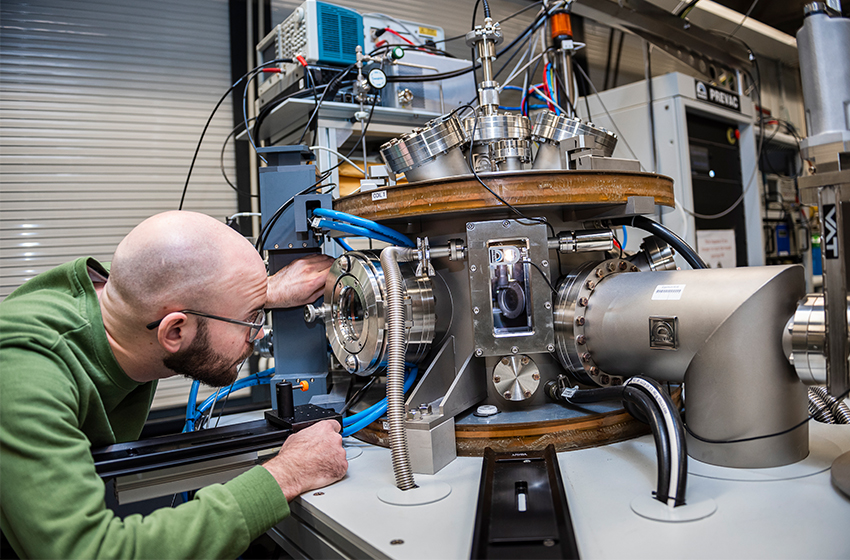Research Training Groups
To promote young scientists at universities, universities can set up thematically focused Research Training Groups. These institutions are funded by the DFG for up to nine years. The main task of the Research Training Groups is to qualify doctoral candidates in a special research program and to accompany them through a structured qualification concept. An interdisciplinary orientation of the Research Training Groups is aimed at. The aim is to prepare the doctoral students for the complex working world of science and at the same time to promote their scientific independence at an early stage.

Image: Damian Gorczany
Integrated College (MGK) SFB 1316 or SFB TR 87
In the Integrated Research Training Group (MGK) of the SFBs 1316 and TR 87, respectively, solid expertise is to be developed in the very interdisciplinary field of transient atmospheric non-equilibrium plasmas, low-pressure plasmas and their interfaces to solids and liquids. Early Career Researchers (ECR) funding addresses the individual academic levels from Master students, PhD students to independent PostDocs. The integrated graduate programme (MGK) consists of lectures, training workshops and practical exercises.
Contact persons:
- Prof. Dr Achim von Keudell (Spokesperson SFB 1316)
- Prof. Dr. Uwe Czarnetzki
- Prof. Dr Judith Golda
Integrated College SFB 1491
The Research Training Group is an important pillar of the Collaborative Research Centre to train and bring together young researchers. The SFB combines four sub-disciplines in a unique way: Astro-, Plasma-, Particle- and Astroparticle Physics. It will be crucial for the success of the SFB to ensure that scientists have a basic knowledge of more than one sub-discipline and learn to speak the same language. The aim of the Research Training Group is to provide a framework for young scientists (ECR, PhD students and postdocs up to six years after graduation) to build a strong network and gain broad expertise in the topics of the SFB.
To achieve this goal, the Research Training Group offers a broad range of courses at the three universities (Ruhr-Universität Bochum, Bergische Universität Wuppertal and Technische Universität Dortmund) as well as an extensive range of soft skills courses. In addition, ECRs are encouraged to invite speakers and organise workshops supported by CRC funding.
In summary, the overall aim of the Research Training Group is to promote superdisciplinarity, independence, internationalisation and career development of ECRs.
Contact persons:
- Prof. Dr Anna Franckowiak
- Prof. Dr Hendrik Hildebrandt
International Max Planck Research School for Sustainable Metallurgy - from Fundamentals to Engineering Materials
IMPRS SusMet is a three-year PhD program with English as the only language of instruction. It offers excellent research opportunities and a comprehensive interdisciplinary curriculum.
The main research direction of the program is the development of carbon-free and sustainable metallurgy using hydrogen as a reducing agent, direct electroreduction (electrolysis) and plasma synthesis. To achieve this goal, experimental, ab initio and multiscale methods are combined and worked on by scientists from the fields of materials science, physics, chemistry and engineering.
IMPRS SusMet cooperates with three Max Planck Institutes and two universities in the Rhine-Ruhr region.
Upon successful completion of the program, doctoral students receive a doctoral degree from one of the participating partner universities as well as a certificate from IMPRS SusMet.
Contact persons:
- Prof. Dr Achim von Keudell
- Prof. Dr Ralf Drautz
International Graduate School of Neuroscience
- Prof. Dr Gregor Schöner

